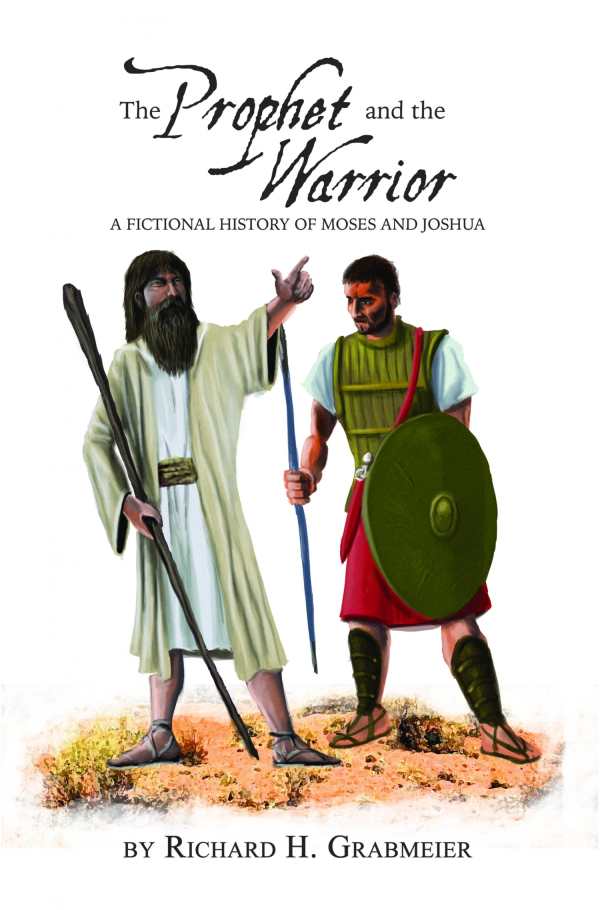The Prophet and the Warrior
A Fictional History of Moses and Joshua
The Prophet and the Warrior is a religious novel that is fascinating for its view of what the biblical story of Moses means.
Richard H. Grabmeier’s novel The Prophet and the Warrior is an epic retelling of the story of Moses and Joshua.
This unvarnished story of the biblical patriarchs focuses on their human sides, which it regards as too often ignored. It begins as Moses flees into the desert, evading Pharaoh’s men; Moses killed someone for beating a fellow Israelite. Soon after his escape, he meets his first wife, Zipporah of Midian, and Moses and his general, Joshua, wage war in the wilderness, seeking to enter and claim the great land of Canaan.
When Moses confronts Pharaoh, he declares that God’s judgment must fall; so it does, sending death and destruction among the Egyptian people. The land trembles, locusts descend, and babies die. The ten plagues cause so much damage that Pharaoh lets Moses’s people go, but for the victors, the journey is just beginning.
The novel sees the Israelites struggle to make their way through the wilderness, fighting hostile tribes that see them as another form of locusts, sent to destroy the land and kill their people. The great biblical drama, and the sweeping ancient Middle Eastern world, are made enjoyable via grounded depictions of the landscapes and cultures that the Israelites meet.
In the novel’s beginning, Moses is a haunted man, struggling to make his way in the world after being born a slave and raised in the royal household. But as the story progresses, he becomes less haunted, driven by the voice of God, whom he alone can hear. Zipporah, his first wife, notices his “aloofness” not long after Moses encounters the burning bush. Moses soon becomes obsessed with following God’s words, abandoning his first family in an effort to save the Israelites. He changes over the course of the novel, becoming more driven and unhinged. It is little surprise when his face becomes “livid with rage” and he screams “Kill them!” at a pair of defeated prisoners.
Joshua is foremost characterized as a general. He leads armies to victory and reflects a bloodthirsty god. Joshua is a firm believer in Moses’s mission, never doubting the man or his violent methods. Other supporting characters help to humanize the story, which spends time with each of the tribes that Moses and his people slaughter, making their efforts all the more grim.
The book’s dialogue has a 1950s, cinematic vibe, heightening its sense of drama. However, the style is wearying; each successive scene is made to carry more weight, sometimes beyond what seems warranted. With its emphasis on grandeur, the text becomes suffocating, leaving little room to consider the implications of scenes.
The story leans on its biblical source material, often including passages from the Bible, but the end effect is strange. Much depends upon God, but God never speaks in the text; what God is said to ask for is always terrible and violent. The novel ends, as does the biblical account, with Moses never setting foot in the promised land, and with Joshua continuing the carnage.
The Prophet and the Warrior is a religious novel that is fascinating for its view of what the biblical story of Moses means.
Reviewed by
Jeremiah Rood
Disclosure: This article is not an endorsement, but a review. The publisher of this book provided free copies of the book and paid a small fee to have their book reviewed by a professional reviewer. Foreword Reviews and Clarion Reviews make no guarantee that the publisher will receive a positive review. Foreword Magazine, Inc. is disclosing this in accordance with the Federal Trade Commission’s 16 CFR, Part 255.

